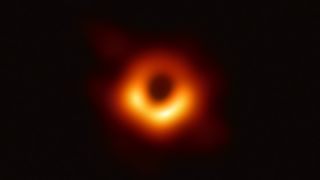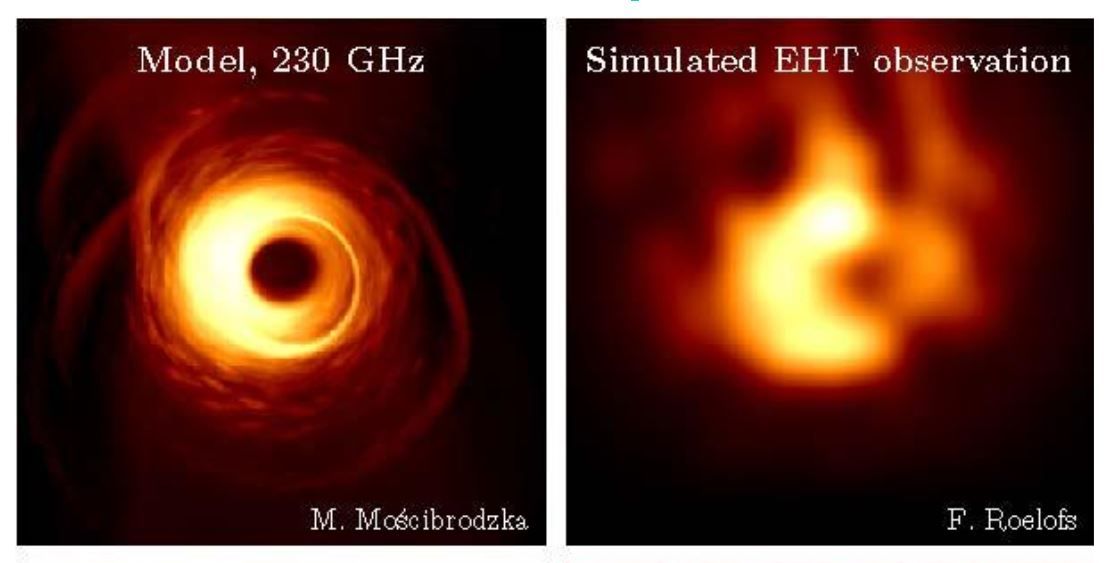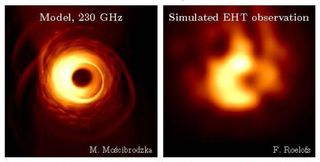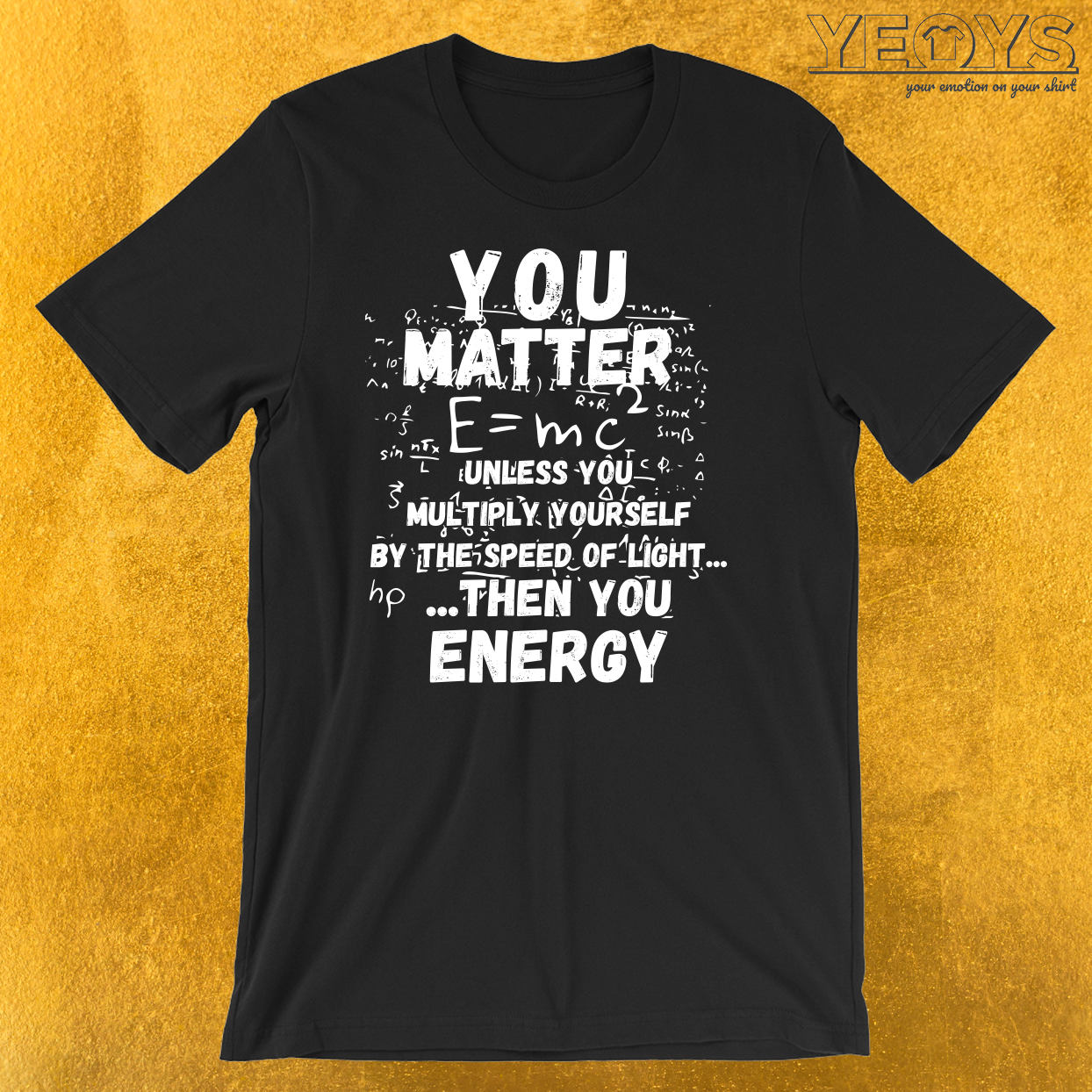The first-ever photo of a sad gap amazed folks the world over. Now, astronomers are aiming to spend even sharper photos of these enigmatic structures by sending radio telescopes into affirm.
The ancient photo grew to alter into public on April 10, when the worldwide study collaboration identified as Match Horizon telescope (EHT) unveiled the hazy nevertheless nonetheless amazing photo of the supermassive sad gap on the center of the galaxy Messier 87.
Astronomers at Radboud College in the Netherlands relish now now not too lengthy ago shared their plans to work with the European Dwelling Agency (ESA) and others to win a larger seek recordsdata from at sad holes by placing two to 3 satellites in a spherical orbit spherical Earth. The understanding that is named the Match Horizon Imager (EHI).
Associated: The Scheme forward for Gloomy Gap Photography: What’s Next for the Match Horizon telescope
The choice of a radio image is miniature by the size of the telescope that receives the signal, and that is the clarification why EHT feeble a community of dish telescopes spherical the world to in actual fact flip Earth true into a planet-size digital telescope. By rising the distances between the radio observations, astronomers may maybe well well one day cowl the general public with a clearer, extra detailed undercover agent of a sad gap, researchers acknowledged in a assertion from Radboud College.
“There are many advantages to the utilization of satellites in wish to eternal radio telescopes on Earth, as with the Match Horizon telescope (EHT),” Freek Roelofs, a researcher at Radboud College and lead author of an editorial describing this doable venture, acknowledged in the assertion.

The Match Horizon telescope, a planet-scale array of eight ground-based mostly radio telescopes solid by world collaboration, captured this image of the supermassive sad gap and its shadow that’s in the center of the galaxy M87.
(Image: © EHT Collaboration)
“In affirm, it is possible you’ll well well presumably originate observations at bigger radio frequencies, since the frequencies from Earth are filtered out by the ambiance,” Roelofs added. “The distances between the telescopes in affirm are also bigger. This allows us to spend a mountainous step ahead. We may maybe well well properly be ready to spend photos with a decision extra than 5 times what’s feasible with the EHT.”
A crisper seek recordsdata from would supply extra than actual aesthetics. Per the assertion, imagery by EHI could be feeble to ascertain Einstein’s Thought of Favorite Relativity in larger component, because ”it is possible you’ll well well presumably spend advance ultimate photos to peep the real important points of sad holes,” Heino Falcke, radio astronomer at Radboud College and co-author on the unusual work, acknowledged in the assertion. ”If cramped deviations from Einstein’s understanding happen, we relish with a opinion to peep them.”
EHI would on the beginning characteristic apart from EHT, nevertheless a hybrid system to combine affirm observations with these taken from the bottom could be a chance.
The plans are detailed in a approaching article in the scientific journal Astronomy & Astrophysics.
- Google Doodle Celebrates the first Gloomy Gap Image by the Match Horizon telescope
- What Exactly Is a Gloomy Gap Match Horizon (and What Occurs There)?
- The Most efficient Hubble Dwelling telescope Photos of All Time!
Apply Doris Elin Salazar on Twitter @salazar_elin. Apply us on Twitter @Spacedotcom and on Fb.






Leave a comment
Sign in to post your comment or sign-up if you don't have any account.